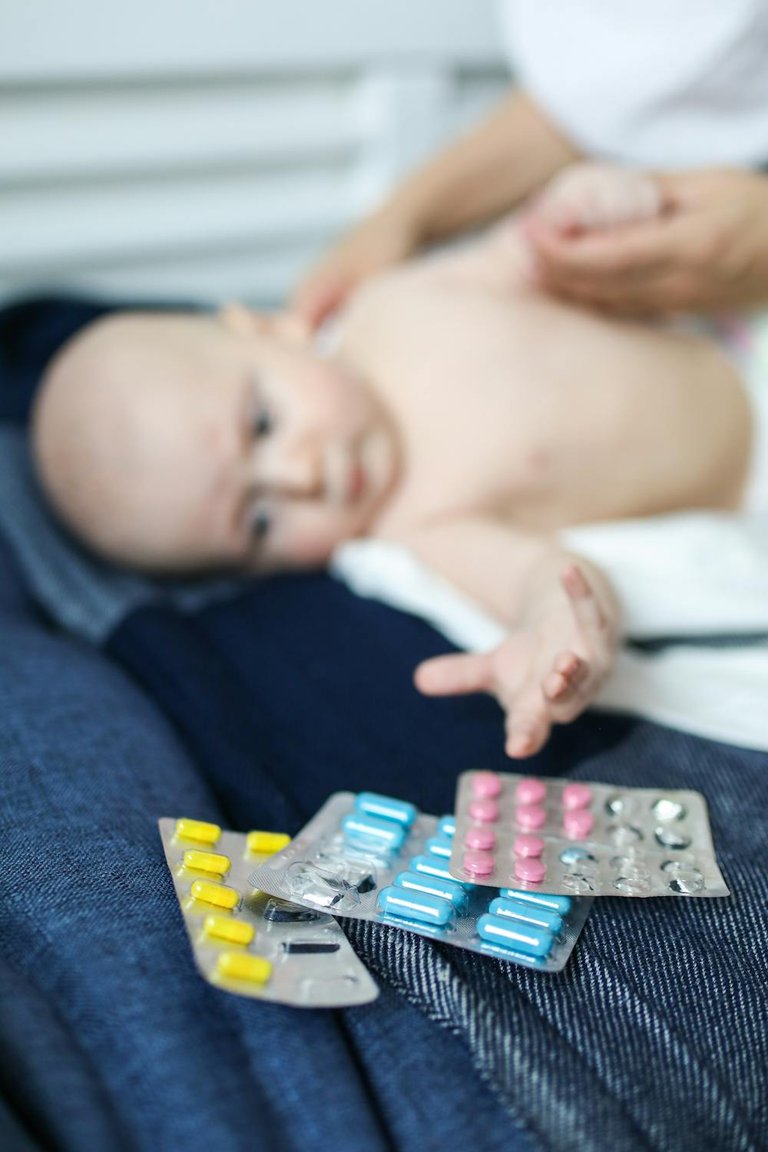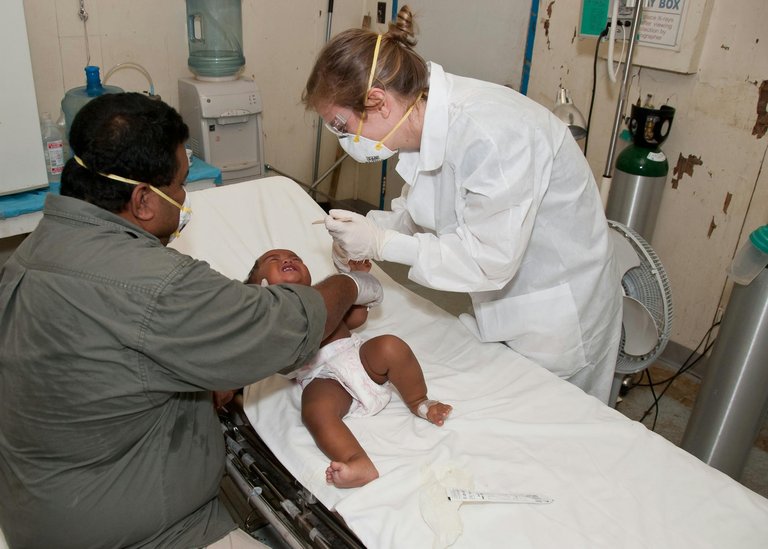From the moment I got pregnant, I started to read more about babies and all I had to know about the possibility of infection that can affect the baby.
So many babies get admitted to the hospital constantly due to infections, and I really believe it is my responsibility as a Mum to protect my baby against all existing forms of infection as much as I could.

Pexels
Babies are normally born with their immune systems being immature; this opens up doors to infections from different angles.
A baby's immune system continues to mature as they grow older, and this means lesser exposure to infections too. Infections come in two forms, either bacterial or viral.
Just like the name, bacterial infections are caused by bacteria, while viral infections are caused by viruses. With the most common types of bacterial infections being the ear, throat, and skin.
Most common forms of viral infections are respiratory. Serious and infrequent infections that affect newborns are often in the form of urinary tract, brain or spinal fluid infections, and blood.

Pexels
One can begin to suspect the possibility of an infection in a child when some of these symptoms are noticed: rash, vomiting, diarrhea, breathing problems, consistent crying, irritability, lethargy, and refusal to take breast milk or a bottle.
There is a possibility of recurrence of infections, as it is easy for children to pass it amongst themselves, especially when they are in daycare centers.
These kids innocently drool over each other and play with each other's toys all day without thinking about the consequences. Some viruses have the ability to remain on materials for hours, so it is easy for children to contact it while they play.
Exposing children to cigarette smoke is another dangerous risk that could open up the child to possible infection and even respiratory dangers.
Repeated cases of infection cause structural changes in the sinuses or the eustachian tube; sometimes it can be an inherited situation that creates differences in the bony part of the skull.
Allergies could also be a reason behind a continuous infection; allergies can create an infection in the nose that lasts for a long time, making bacteria grow and therefore causing an infection.
A child can also get infected from birth if the passage is from an infected birth canal or if infection moves up from the vagina if delivery is delayed after the membrane must have ruptured.
During birth, possible infections include HIV, chlamydia, E. coli infections, listeriosis, herpes simplex virus infection, streptococcal infections, and hepatitis B virus infection.

Pexels
After birth, a newborn can also get infected through an infected mother, family member, or healthcare practitioner.
It is very rare for infections that affect children to be caused by fungi or parasites; the case is usually bacterial or viral.
There is so much work in the hands of parents and caregivers in terms of preventing infection after birth.
You must update your neatness game to a better level and consistently wash your hands and that of your child. Wash after using the bathroom, sneezing, and coughing.
Smoking in the same environment with your child is highly disastrous. Vaccination is a top priority too; ensure you vaccinate your children against all forms of childhood diseases as advised by your doctor.
Bear in mind that there are major ways infection spreads and what to do to prevent them from happening.
Infection spreads through direct contact with an infected person who carries germs in their nose, on their skin, or in their eyes. Direct contact, like kissing, touching, makes the spread of an infection possible here.
Indirect infection spread happens through the touch of an item. An infected person may touch an item or a surface, and then an uninfected person becomes infected too in the process.
Germs also spread through droplets when an infected person coughs or sneezes without a handkerchief.
Airborne diseases are also common; air stays in the air, and they are carried around on air currents.
There is still so much to say about infections, and I think I will be going more in-depth into neonatal infections in my next post. Stay safe out there because infections are real.
For Further Studies
https://www.royaldevon.nhs.uk/media/c5dlkfe1/infection-in-newborns-610-v4.pdf
https://familydoctor.org/condition/repeated-infections-in-children/

Hi, I am Tobi, a writer, speaker, relationship blogger, and lover of good music. I love making friends and learning from people. If you want to hear me speak about relationships and general life issues, you can find my YouTube channel where you can watch any episode for free, please do not forget to subscribe, friends. I sincerely appreciate every love I get from here, Kindly do well to keep them coming.
